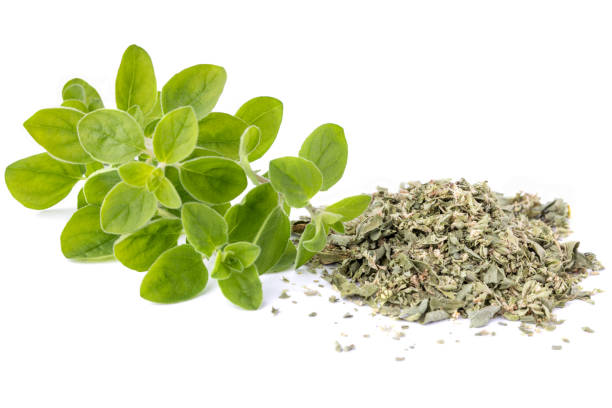Marjoram herb has great nutritional value!!

Marjoram is an aromatic plant, commonly used in alternative medicine; Because of its great benefits for women, to the point where it was called the “Women’s Friend”; Because it helps her get rid of dysmenorrhea, stomach pain, white lines, knee pain, and loin pain, and it also helps to lose weight and solves hair and infertility problems.
Marjoram or marjoram, which is scientifically known as (Origanum majorana), is one of the perennial trees that dates back to the Mediterranean region, and is cultivated in many countries such as Europe, North Africa and Asia, and is used as a type of spice in cooking. The trees of this plant are characterized by its branching stems. Its dark green leaves are oval in shape, its flowers are white, purple or pink, and it produces brown and small fruits. Marjoram is characterized by its strong aromatic flavor, and it has many health benefits.
What is the health and nutritional value of marjoram?
Marjoram herbs have a sweet and sour taste together, and have many health benefits. Because it contains anti-bacterial and antioxidant properties, in addition to containing many minerals and vitamins that are beneficial to health, all parts of marjoram are used in the pharmaceutical industry and in the treatment of some diseases. It is also used in some food and spice industries, because of its wonderful flavor. Each 100 grams of marjoram contains:
- 271 calories
- 60.65 g carbs
- 12.66 grams protein
- 7.04 g fat
- 40.3 fibers
- 8068 IU Vitamin A
- 51.4 mg Vitamin C
- 1.69 mg Vitamin E
- 621.7 mg Vitamin K
- 77 mg sodium
- 1522 mg potassium
- 1990 mg calcium
- 1.133 mg copper
- 82.71 mg iron
- 346 mg magnesium
- 3.60 mg zinc
- 4806 mcg beta-carotene 1895 mcg of lutein zeaxanthin
Health benefits of marjoram.

The marjoram plant enjoys its health benefits that have been proven by many researches, and we will discuss below the most important health benefits of marjoram:
1-Marjoram has anti-inflammatory and antioxidant properties
Marjoram has antioxidant properties that prevent cell damage caused by free radicals, which are harmful molecules. The components in this plant such as carvacrol have antioxidant effects that help reduce inflammation in the body, as inflammation is a natural response of the body, but chronic inflammation leads to infection With autoimmune disorders, cancer, and diabetes, reducing inflammation reduces the chances of developing these diseases.
2-Has antimicrobial activity.
Marjoram has antimicrobial properties, and a common way to use marjoram is to apply its essential oil to the skin to treat fungal infections, and taking marjoram supplements helps treat bacterial overgrowth in the intestines.
3-Relieves digestive problems.
Marjoram protects the digestive system from related problems, such as some foodborne diseases and stomach ulcers. A study conducted on rats demonstrated that marjoram extract protects against stomach ulcers, and human studies are still needed.
4-Regulates the menstrual cycle and hormones
Marjoram stimulates the flow of menstruation and taking marjoram tea or extract regulates the menstrual cycle and restores hormonal balance for non-pregnant women who suffer from irregular periods.
This plant also helps in the treatment of PCOS, which is known as a hormonal disorder that is a symptom of acne and irregular menstruation.
What are the harms of marjoram and contraindications to its use?
Like other herbs, too much of it may harm health, as many doctors warn against eating marjoram during pregnancy, and it is also advised not to take it too much during breastfeeding periods. Marjoram can also cause an allergic reaction in some people who are allergic to other herbs such as wild thyme, sage, mint, and lavender.
It is also advised to avoid taking it if you have one of these conditions:
- Blood flow disorders (bleeding disorders).
- slow heart rate;
- Intestinal and gastrointestinal obstructions.
- Ulcers.
- Asthma or chronic obstructive pulmonary disease.
- epilepsy;
- Obstruction of the urinary tract or reproductive system.
- before having surgery.


